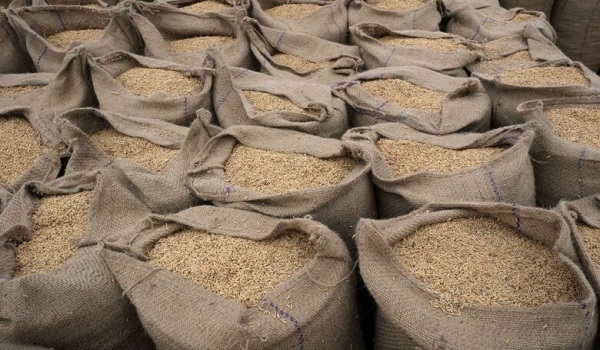Following India’s recent reduction of the minimum export price (MEP) for basmati rice from $1200 to $950 per tonne, a wave of significant buyers from Turkey has flocked to India, leading to a notable surge in basmati rice prices in the export markets. The prices have rapidly increased to a range of $975 to $1,000 per tonne, driven by strong global demand for this premium rice variety.
This price increase has been a boon for farmers in regions such as Haryana, Punjab, and western Uttar Pradesh, who are now fetching Rs. 3900 per quintal for their basmati paddy crop (specifically the 1509 variety). This represents a remarkable Rs. 700 per quintal increase in just one week, fueled by heightened international demand for basmati rice.
Vijay Setia, a prominent basmati exporter and former president of the All India Rice Exporters Association (AIREA), revealed that previously stalled contracts, kept in abeyance due to the sub-$1200 price per tonne, are now being executed. Moreover, fresh orders are pouring in, with substantial Turkish buyers making visits to India to secure significant volumes of basmati rice.
The backdrop to this development involves the government’s decision on August 25 to prohibit the export of basmati rice below $1,200 per tonne. This move was aimed at preventing potential instances of “illicit” shipments of regular white non-basmati rice disguised as high-quality basmati rice. Contracts for rice priced below $1,200 per tonne were temporarily suspended, and the Agricultural and Processed Food Products Export Development Authority (APEDA) was tasked with forming a committee to assess these contracts.
In response to representations made by AIREA, Union Commerce and Industry Minister Piyush Goyal agreed to lower the MEP to $950 per tonne last week, setting the stage for the recent surge in basmati rice exports.
While the price increase has been a relief for farmers, who had been grappling with stalled sales due to the previous pricing constraints, there are calls for vigilant oversight of commission agents involved in purchasing paddy from farmers to ensure that they receive fair compensation.
The surge in basmati rice exports is expected to have a ripple effect on domestic consumers, as domestic prices of basmati rice have already increased by approximately 9% in the last five days, with the potential for further increases as export contracts are executed. It is anticipated that domestic prices may rise by an additional 10% within the next month.
Of the total acreage of 1.7 million hectares dedicated to basmati rice cultivation, the 1509 variety accounts for about 40% of the area. In the fiscal year 2022–23, India’s basmati rice exports reached 4.5 million tonnes, with a total value of Rs 38,524.11 crore, with Gulf nations serving as the major buyers. More than 80% of the basmati rice produced in India is earmarked for export.


